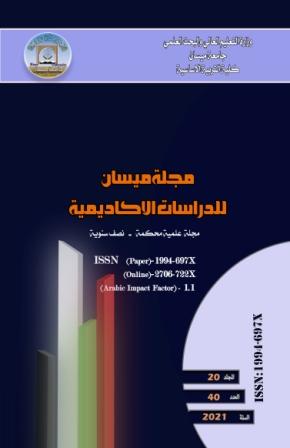Trump’s Discourse on Iran Nuclear Deal: A Critical Study
Abstract
The current study, which was conducted in line with the conventions of Critical Discourse Analysis, attempts to bring forth the underlying concepts, concerning the social activities of the U. S. withdrawal from Iran nuclear deal in the discourse of the American president Donald Trump (2017). The study was centered on discussing how power is established and re-established in the discourse under investigation; in addition, Trump’s identity and ideology were also foci of the discussion of this study. The data sampling of this study was selected from “Trump’s speech on Iran Nuclear Deal” delivered on the 8th of May, 2018. To realize the objectives of the study to fruition, three theoretical insights were advocated: Fairclough’s (1989) “Relational
Values”; Van Dijk's (1990) “Discourse, Power, and Access”, and van Dijk’s (2014) “Socio-cognitive Approach to CDA”. The study came up with certain conclusions: I.
there was interconnectedness between Trump’s narcissism and his utilization of personal pronouns, II. personal pronouns were manipulated in the discourse, under investigation, as a means of shaping and reshaping social structures, III. some of the lexical items utilized in the given discourse were potential enough to display Trump’s attitude of hostility and aggressiveness towards Iran, an attitude that was structured by his socio-cognitive background on the Iranian politics after 1979, and IV. conditional constructions were employed by Trump to configure hypothetical realities on the Iranian nuclear deal and the Iranian political system.
Downloads
The copyright is also the copyright of the magazine only.
All articles published in our magazine are subject to license terms
Creative Commons Attribution(CC BY-NC-ND 4.0) This license permits the content to be reproduced, redistributed and reused in whole or in part for any purpose free of charge, without any permission from the author(s), researcher or student.
Works submitted to Maysan Journal of Academic Studies for publication in the journal (CC BY-NC-ND 4.0) license terms. Where available content can be shared, distributed and replicated provided there is no commercial profit and appropriate credit must be given to the original source through sources or citations. It is mandatory to review any material used from other sources including shapes, tables, and images for re-use under the terms of the Creative Commons License (CC BY-NC-ND 4.0).Provided that there is no modification to the original content



